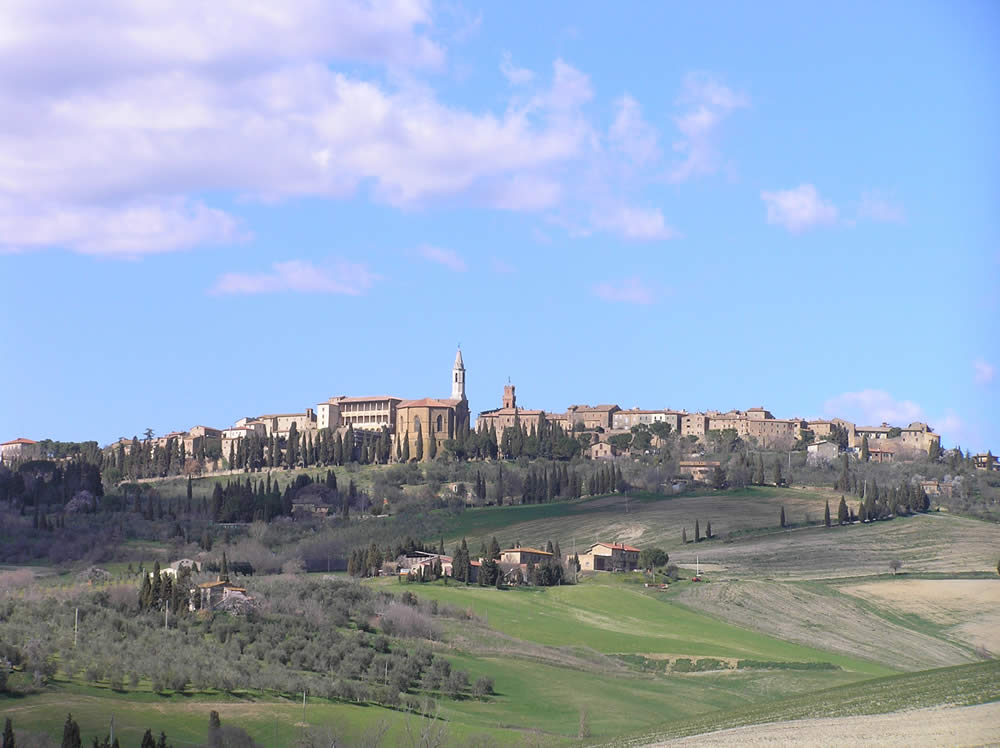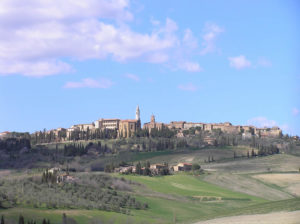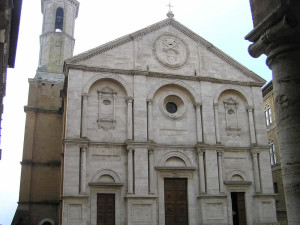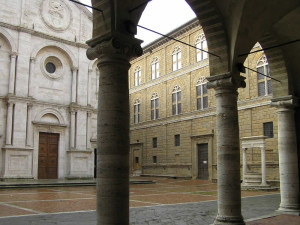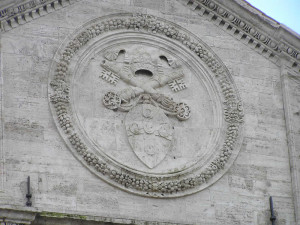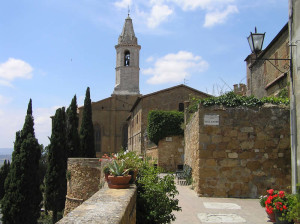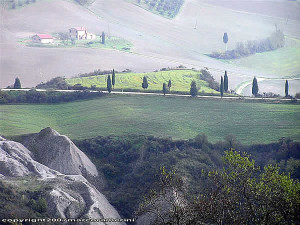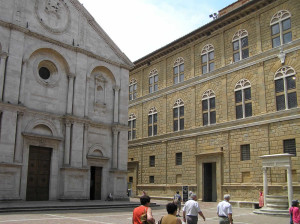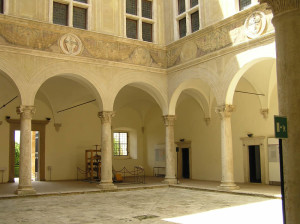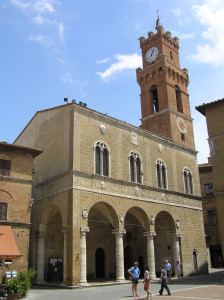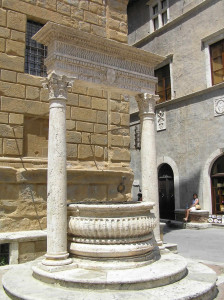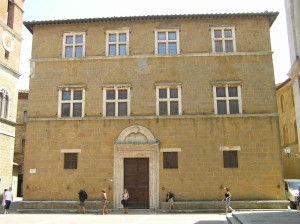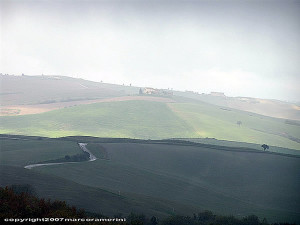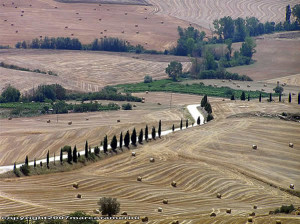Questo articolo è disponibile anche in:
![]() Français
Français ![]() Deutsch
Deutsch ![]() Español
Español ![]() Italiano
Italiano
Pienza is a wonderful village that lies on a hill dominates the Val d’ Orcia at about 490 amsl. The small city is approximately 50 km from Siena and is reachable travel along the Cassia until San Quirico d’ Orcia and then following the indications for Pienza.
Another road that can be used is the Siena-Bettolle exiting at Sinalunga and continuing for Torrita di Siena and then for Pienza. Pienza was included in 1996 in the list of UNESCO World Heritage Sites.
HISTORY
Originally called Corsignano. This village owes its appearance to the will of Pope Pius II, Enea Silvio Piccolomini, and to the work of Bernardo Gambarelli known as Rossellino. The future Pius II was in fact born in Corsignano-Pienza in 1405 and when he was elected Pope in 1459 he decided to embellish his birthplace.
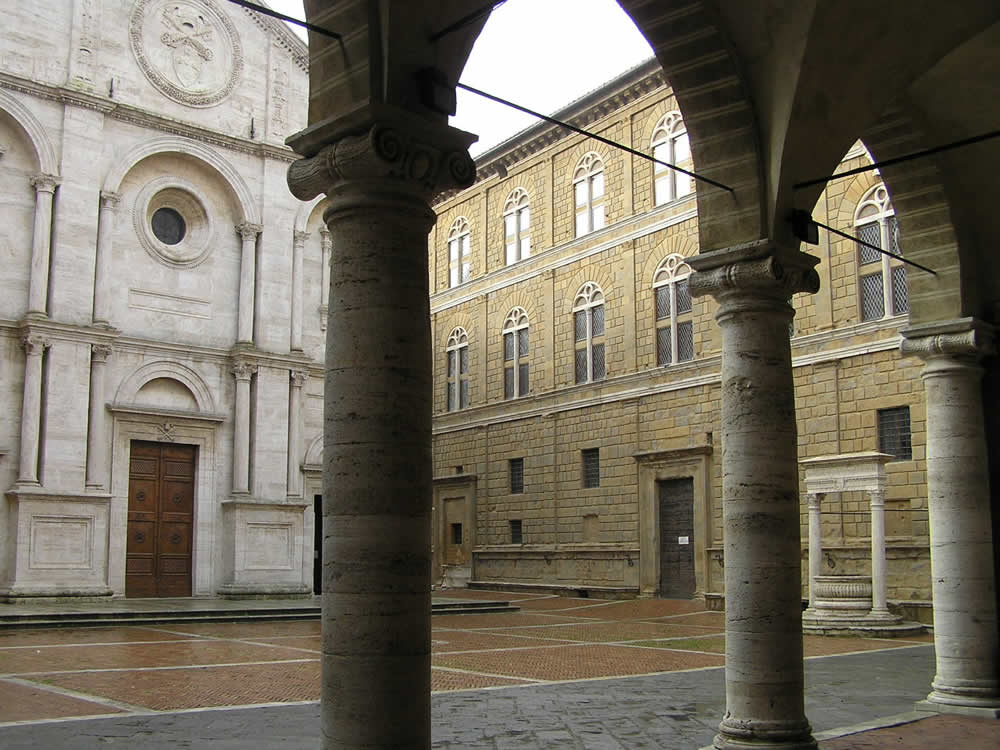
In 1462 the Pope visited the city, where work was at an advanced stage, and in August of the same year he elected it as a city with the name of Pienza. When Pius II died in August 1464, the works that had not yet been completed were abandoned. So it was that Pienza became, even if unfinished, the only example of a 15th century city built with a pre-established plan, its plan is rectangular. The most important buildings are above all in Piazza Pio II: the Cathedral, Palazzo Piccolomini, Palazzo Comunale, Palazzo Vescovile and Palazzo Ammannati.
Pienza is located in an enchanting position overlooking the Val d’Orcia, making the tour of the town walls the view sweeps over beautiful panoramas. In particular, two points are noteworthy. The side of the promenade along the walls that goes towards the cathedral which overlooks the Val d’Orcia and the side where there are the two circular towers from where you have, in my opinion, the most beautiful panorama towards the valley of the Torrente Tresa and the village of Monticchiello.
Now let’s move on to visit the central square of the town, Piazza Pio II.
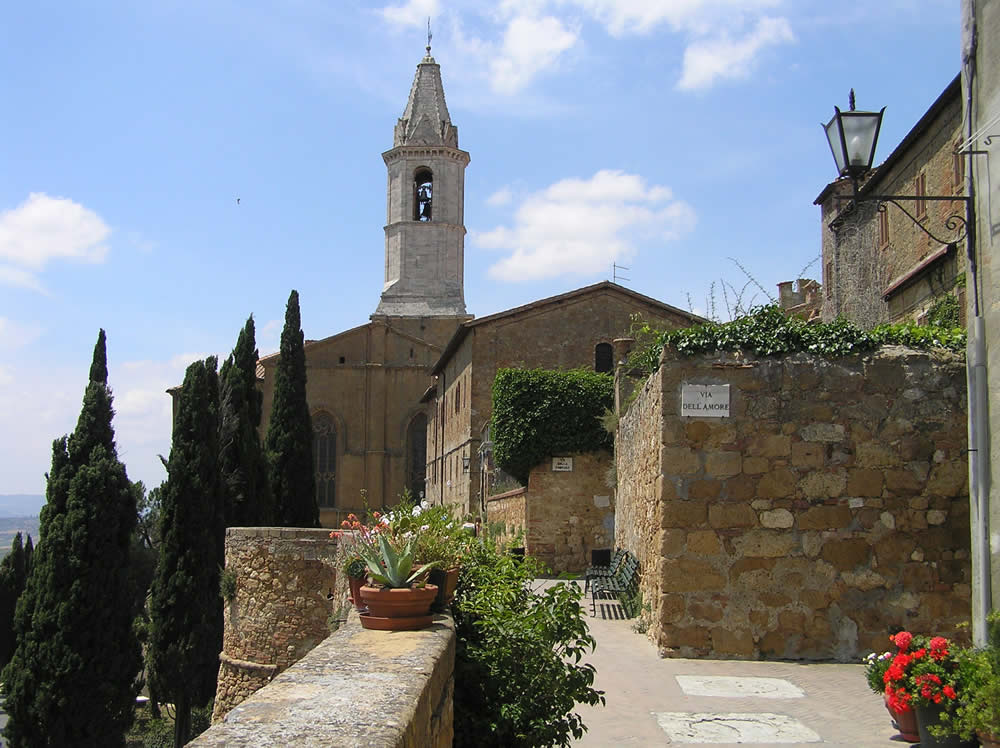
PIAZZA PIO II
The monumental center of Pienza is Piazza Pio II. A living example of the ideal utopian city designed by humanist architects of the fifteenth century. The square gathers all the main buildings of the village. Including the Duomo, Palazzo Vescovile, Palazzo Piccolomini, Palazzo Comunale, Palazzo Ammannati and a beautiful fifteenth-century well.
In the square, the facade of the Cathedral of the Assumption stands out, which was built between 1459 and 1462. While the rest of the building is in tuff, the facade is in travertine with a double order of columns and three portals. The coat of arms of Pius II stands out in the large tympanum. The interior has three naves and contains five tables by Sienese artists of the fifteenth century and an altar attributed to Bernardo Rossellino.
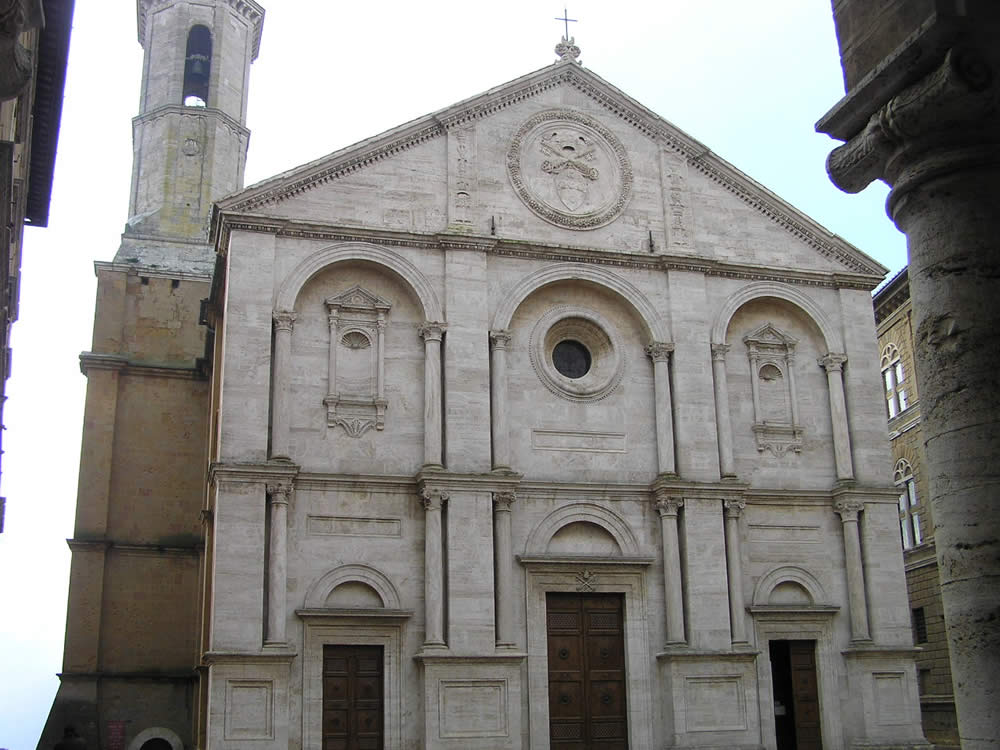
To the right of the cathedral is Palazzo Piccolomini. This is the most important building in Pienza, a masterpiece by Bernardo Rossellino, it was built between 1459 and 1462. It represents a copy of the Palazzo Rucellai in Florence designed by Rossellino himself, it has a square plan, flat bosses with Tuscan-style pillars and two mullioned floors. Inside the building there is a beautiful square courtyard with loggia and a garden with a beautiful view over the Val d’Orcia. Finally at a corner of the building is the fifteenth-century well with two columns with capitals.
The Palazzo Vescovile or Borgia is located to the left of the Duomo. This palace has two floors of Guelph windows and was restored by Cardinal Rodrigo Borgia (future Pope Alexander VI). On the opposite side of the square from the Duomo are the Palazzo Comunale (with Ionic order portico, with a four-mullioned floor and with a beautiful tower finished in 1599) and Palazzo Ammannati.
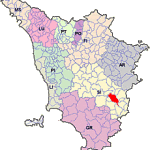
USEFUL INFORMATION:
Weekly Market in Pienza: Friday
Ex Foro Boario – Via Mencattelli
Tourist Information Office
Corso Rossellino, 30 Tel. e Fax 0578749905
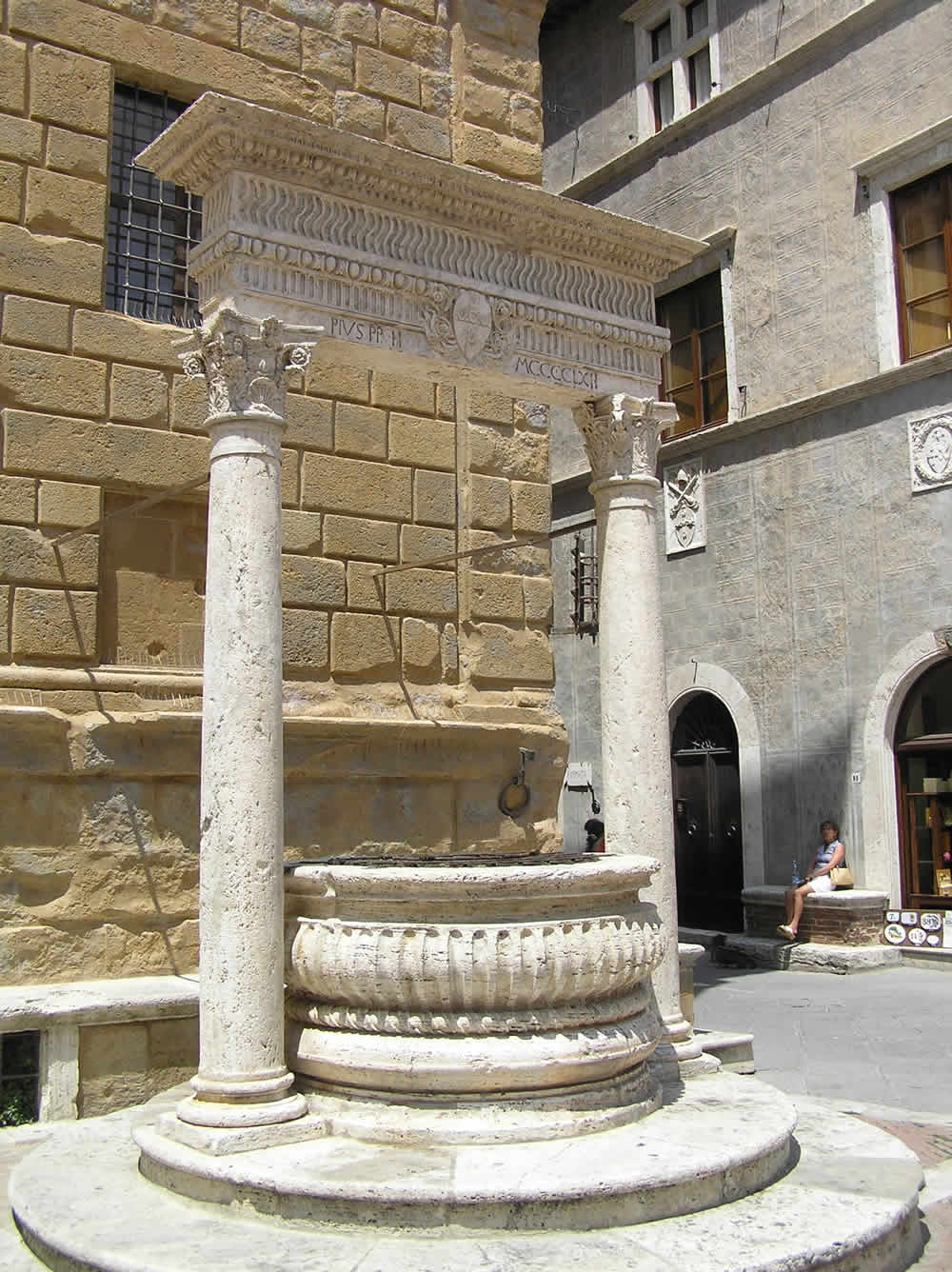
BIBLIOGRAPHY
- AA. VV. “Toscana” Guide Rosse Touring Club Italiano, 2007
- Finelli Luciana, Rossi Sara “Pienza, tra ideologia e realtà” 1978, Dedalo
- AA. VV. “Pienza, Monticchiello, La Foce e la Val d’Orcia” 2012, KMZero
- Sordini Beatrice “Breve storia di Pienza” 2009, Pacini Editore
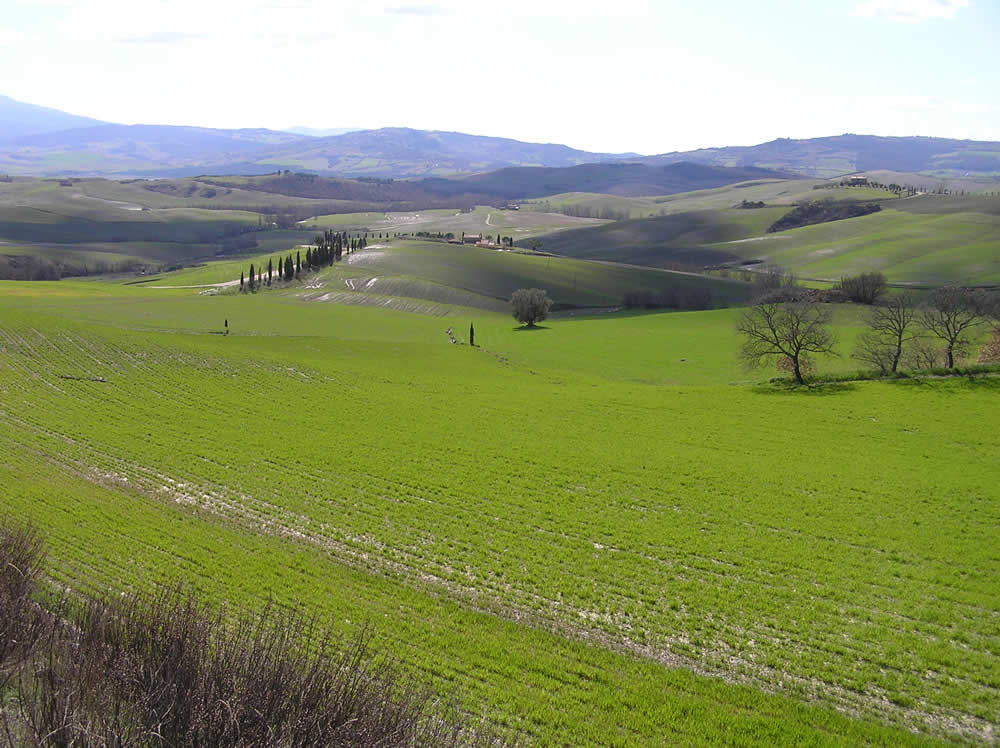
Questo articolo è disponibile anche in:
![]() Français
Français ![]() Deutsch
Deutsch ![]() Español
Español ![]() Italiano
Italiano

